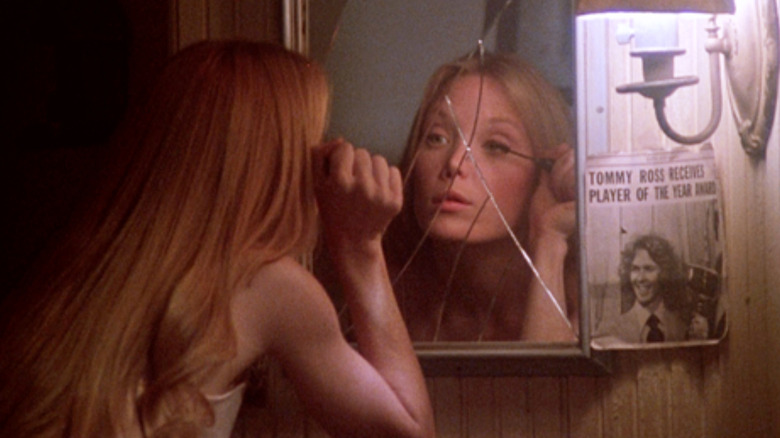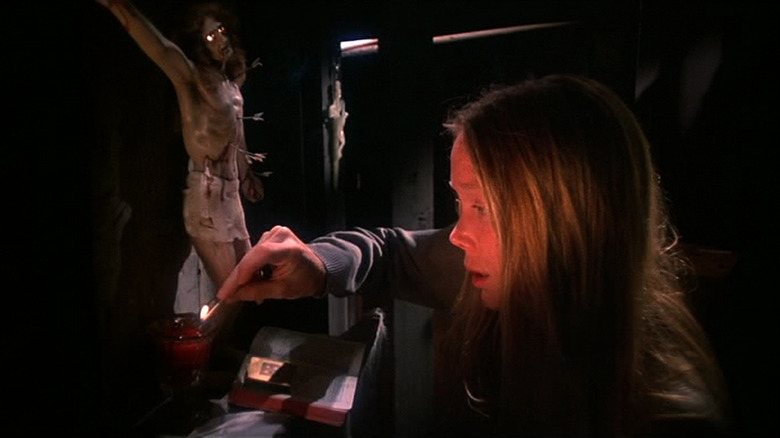Sissy Spacek And Brian De Palma Disagreed On What Carrie Was Really About
"Carrie" is a seminal horror film for many reasons. It was the first-ever adaptation of a Stephen King novel, and helped boost the profile of the new style of horror filmmaking after the releases of "The Texas Chain Saw Massacre" and "Black Christmas." Not only that, but it also helped launch the career of its star, Sissy Spacek, and contributed to the growing popularity of its director, Brian De Palma. By implementing some smart changes from its source material, "Carrie" continues to be a favorite classic horror among many genre fans, myself included.
Perhaps the major reason why it's still so highly regarded to this day is that it touches upon universal themes of teenage loneliness. After all, the titular telekinetic heroine just wanted to be loved and understood by those around her. Who didn't feel similar desires in their teenage years?
However, according to Spacek, that wasn't necessarily what she thought "Carrie" was about when she was filming it. In an interview with ComingSoon.net, she was asked about her thoughts on the tragedy and ultimate iconization of the character. There, she revealed that she and De Palma had friendly disagreements about Carrie's motivations and beliefs.
"I remember always saying to Brian De Palma, the director of 'Carrie,'" she recalled, "that this story is really about a young girl who is an artist who just wants to be normal, and he'd say to me, 'No Sissy, it's about teenage angst.'"
The terrors of growing up
While the description of Carrie as an artist might sound out of left field at first, it actually makes a bit of sense when you think about it. As we see in the film, Carrie focuses on the beauty of the world in an attempt to affirm her own personhood. Her mother Margaret (Piper Laurie) considers essentially everything, including non-holy art, sinful. While it might have been silly for her classmates to be moved by something like a pollution-themed poem, it was rebellious and meaningful to her. You can also certainly interpret her methodical destruction of the prom as artistic, especially in the way that De Palma shoots it.
Even though the two initially disagreed, Spacek said that she came around to understanding De Palma's interpretation. She even gave her own thoughts about why discussions around its meaning are still happening to this day.
"I guess it's about all those things," she said, "I believe that everyone at some point in their life felt like Carrie in their lives, especially in high school and I think that's why people connected with her. It's healthy to find catharsis through characters in film."
No matter how you interpret "Carrie," we can all agree that it resonates in a powerful way. It can't be exactly about one thing or another — rather, it can be up for interpretation as long as it involves the universal feeling of teenage aimlessness. No wonder all other remakes and reinterpretations haven't felt as authentic as Spacek and De Palma's first iteration.

